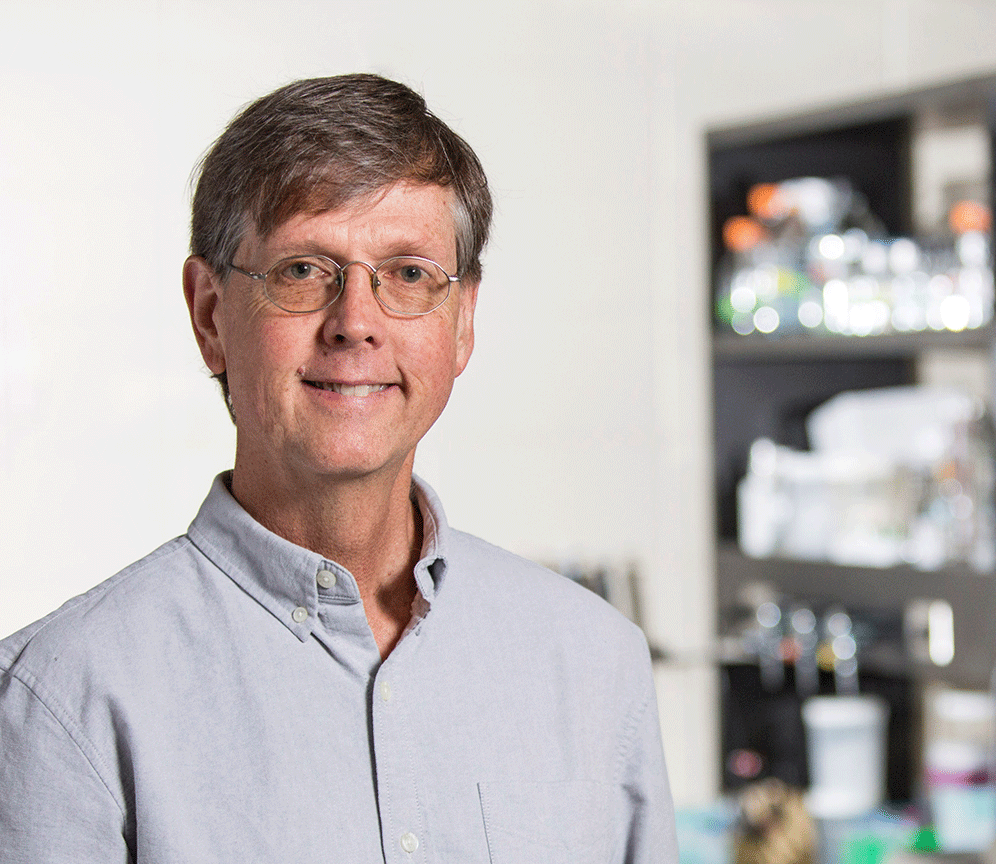Mike Strand

Research
This lab studies primarily the interactions between different types of parasites and their insect hosts. Most of our projects involve parasitoid wasps that develop as immatures in or on the bodies of other insects but that are free-living as adults. Parasitoid wasps are among the most species-rich group of organisms on earth. Many parasitoids are also very important economically because of their use as biological control agents of insect pests.
One study area in the lab focuses on understanding how the host’s immune system protects insects from parasitoid invasion and reciprocally, how parasitoids overcome host defenses. This includes the study of microbial symbionts like polydnaviruses that are carried by many parasitoids and that play a key role in suppressing the immune system of host insects.
Another study area focuses on life history evolution and how parasitic lifestyles have affected developmental processes. We are particularly interested in polyembryonic parasitoids that exhibit many dramatic developmental adaptations as well as a sophisticated caste system that resembles in many ways the social systems of bees, ants, and termites.
Selected Publications
- Giron, D., K.G. Ross, and M.R. Strand. 2007. The presence of soldier larvae determines the outcome of competition in a polyembryonic wasp. J. Evol. Biol. 20:165-172.
News
All the pieces matter: UGA researchers collaborate to solve malaria puzzle
Trainee Spotlight: Benjamin Phipps
Key to Controlling Mosquitoes May Reside in Their Gut Microbiota (Growing America)
What’s Bugging Michael Strand?
Trainee Spotlight: Ruby Harrison
UGA Researchers Receive NSF Grant to Study Hormone Regulation in Mosquitoes
‘Prestigious recognition’: UGA entomologist elected to National Academy of Sciences
UGA entomologist Michael Strand elected to National Academy of Sciences
UGA researchers find hormone receptor that allows mosquitoes to reproduce

Professor, Department of Entomology
420 Biological Sciences Building
706-583-8237
mrstrand@uga.edu
Lab Website
Search PubMed
